
If you have an inquisitive mind, a chemistry degree may help you more than you think.
Put away the image of Albert Einstein and consider that there are positions that don’t require a number of years in college.
These types of degrees are very versatile.
They provide surprising opportunities to explore a selection of careers in many industries, including:
- Healthcare
- Business
- Research
- Science
- Agricultural
- Marine
This flexibility makes it easy to find a position that interests you.
Many of them pay a lot of money as well.
To give you an idea of what’s out there, today I’m breaking down 12 of the best jobs you can get with a chemistry degree.
If you love chemistry, there are a ton of jobs available for you.
Some only require certification or an associate’s degree.
But, keep in mind that the more education you have, the more money you make.
Good luck!
1. Toxicologist

Why Become a Toxicologist?
- Minimum Education: Associate’s degree
- Average yearly salary: $52,910
Responsibilities:
Toxicologists work with tissue and blood samples.
Their job is to examine these substances to see if there are foreign substances in the body.
These include alcohol, poison, pharmaceuticals, and other substances.
A lot of them help law enforcement with criminal cases.
| Toxicologist Key Stats | |
|---|---|
| Education | 4+ Years |
| Outlook | 8% |
Read the full career guide: How to Become a Toxicologist
2. Chemist
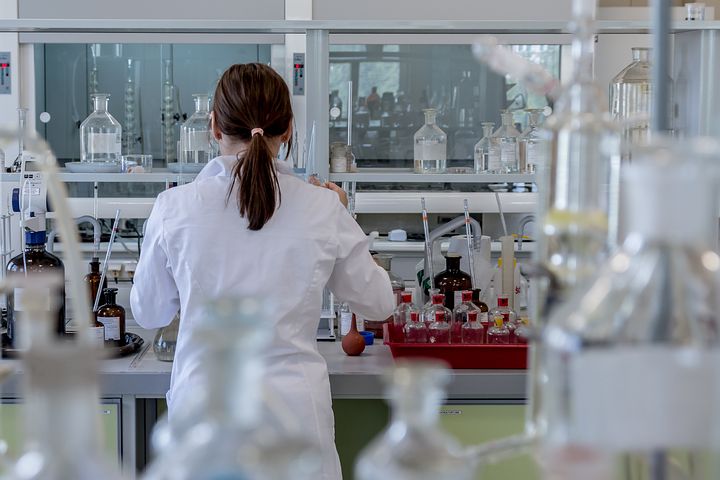
Why Become a Chemist?
- Minimum Education: Bachelor’s degree
- Average yearly salary: $84,150
Responsibilities:
They study substances at their molecular levels and investigate their properties.
Furthermore, they use what they learn to develop new products.
These include medicines, plastics, and detergents.
Chemistry is a broad subject.
There are different subsets to focus on, depending on your interests.
They include:
- Analytical
- Inorganic
- Theoretical
- Organic
| Chemist Key Stats | |
|---|---|
| Education | 4+ Years |
| Outlook | 6.5% |
Read the full career guide: How to Become a Chemist
3. Oceanographer

Why Become an Oceanographer?
- Minimum Education: A post-secondary degree, but a Master’s is preferable
- Average yearly salary: $98,730
Responsibilities:
They’re responsible for researching marine ecosystems.
They perform scientific studies on marine-related topics.
These include seafloor geology, water circulation, water compounds, and more.
| Oceanographer Key Stats | |
|---|---|
| Education | 4+ Years |
| Outlook | 6% |
Read the full career guide: How to Become an Oceanographer
4. Chemical Engineer
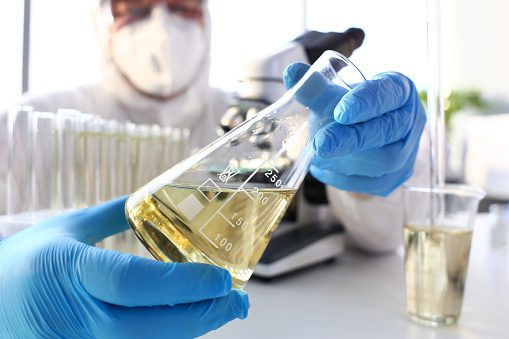
Why Become A Chemical Engineer?
- Minimum Education: Bachelor’s degree
- Average yearly salary: $117,090
Responsibilities:
Chemical engineers study biology and math.
This skill-set helps them create chemical production processes.
They work with companies that manufacture food, pharmaceuticals, and more.
| Chemical Engineer Key Stats | |
|---|---|
| Education | 4+ Years |
| Outlook | 6% |
Read the full career guide: How to Become A Chemical Engineer
5. Clinical Laboratory Technician

Why Become a Clinical Laboratory Technician?
- Minimum Education: A certificate or Associate’s degree
- Average yearly salary: $54,780
Responsibilities: ]
They work in the healthcare field.
Their job is to perform tests on cells and body fluids.
They help physicians detect and diagnose disease.
Most of their jobs are in the medical field, and you can find them in a clinic, diagnostic lab, or physician’s office.
| Clinical Laboratory Technician Key Stats | |
|---|---|
| Education | 1-2 Years |
| Outlook | 11% |
Read the full career guide: How to Become a Clinical Laboratory Technician
6. Clinical Researcher

Why Become Clinical Researcher?
- Minimum Education: Bachelor’s degree
- Average yearly salary: $82,760
Responsibilities:
They work for medical device manufacturers, contract research organizations, and academic institutions.
Their job is to oversee and conduct clinical service studies and trials.
Their research determines which medical devices and pharmaceuticals can go on the market.
Based on information from CNNMoney, this profession is one of the best jobs in America.
It is in the number four spot in the top 100 jobs because of:
- High wages
- Tons of growth potential
- Variety of research topics to choose from
| Clinical Researcher Key Stats | |
|---|---|
| Education | 4+ Years |
| Outlook | 8% |
Read the full career guide: How to Become Clinical Researcher
7. Nuclear Technician
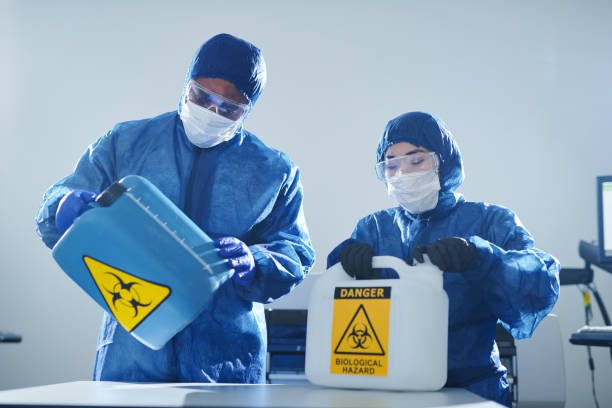
Why Become a Nuclear Technician?
- Minimum Education: Associate’s degree
- Average yearly salary: $82,710
Responsibilities:
They are a specialized type of technician.
They help scientists develop new procedures and products for the scientific community.
Likewise, they work in laboratories and help scientists carry out technological tasks.
They use nuclear physics to guide maintenance, production, and QC procedures.
| Nuclear Technician Key Stats | |
|---|---|
| Education | 4+ Years |
| Outlook | -7% |
Read the full career guide: How to Become a Nuclear Technician
8. Pharmacist

Why Become a Pharmacist?
- Minimum Education: D. in Pharmacology
- Average yearly salary: $125,510
Responsibilities:
Pharmacists must understand different drugs and how they interact with the body.
They prepare prescriptions.
They also give patients health advice.
It’s perfect for people who want to work in medicine but not in a high-stress environment.
| Pharmacist Key Stats | |
|---|---|
| Education | 3-4 Years |
| Outlook | -2% |
Read the full career guide: How to Become a Pharmacist
9. Biochemist

Why Become a Biochemist?
- Minimum Education: Bachelor’s degree
- Average yearly salary: $108,180
Responsibilities:
Another name for a biochemist is a biological scientist.
They study the chemical composition of all organic beings on a microscopic level.
This helps them understand the complicated reactions that create growth, metabolism, and reproduction.
They work for educational institutions as researchers or professors.
Some of them work in the business world and do research to create a variety of products.
They also do product development jobs in the medical, industrial, and agricultural fields.
| Biochemist Key Stats | |
|---|---|
| Education | 4+ Years |
| Outlook | 11.4% |
Read the full career guide: How to Become a Biochemist
10. Biomedical Engineer
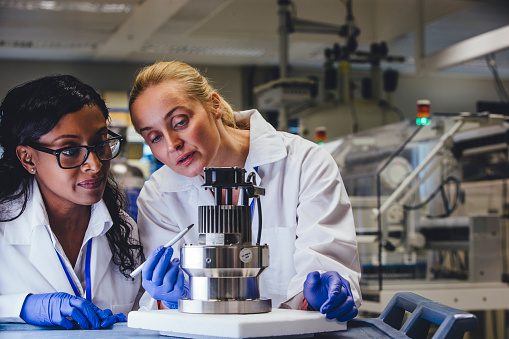
Why Become a Biomedical Engineer?
- Minimum Education: Bachelor’s degree
- Average yearly salary:$97,090
Responsibilities:
Their job is to solve problems in the medical field and biology.
Their research improves patient quality care in healthcare settings.
| Biomedical Engineer Key Stats | |
|---|---|
| Education | 4+ Years |
| Outlook | 4% |
Read the full career guide: How to Become a Biomedical Engineer
11. Bioinformatics Engineer
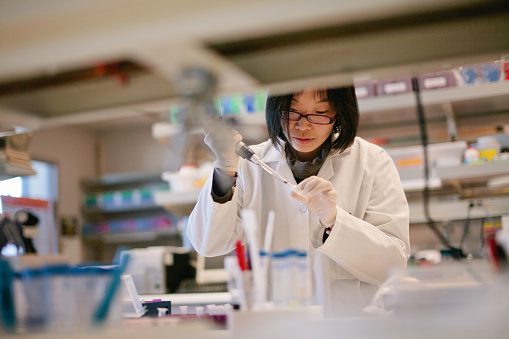
Why Become a Bioinformatics Engineer?
- Minimum Education: Bachelor’s degree
- Average yearly salary: $97,090
Responsibilities:
They’re knowledgeable in biology, information technology, and computer science.
It helps them create and use complex databases that store comprehensive biological information.
| Bioinformatics Engineer Key Stats | |
|---|---|
| Education | 4+ Years |
| Outlook | 16% |
Read the full career guide: How to Become a Bioinformatics Engineer
12. Environmental Scientist
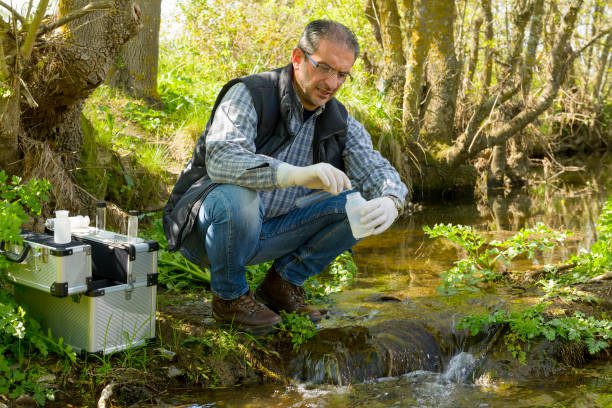
Why Become an Environmental Scientist?
- Minimum Education: Bachelor’s degree
- Average yearly salary: $77,940
Responsibilities:
They focus on solving problems concerning human health and the environment.
They collect and examine samples to determine health risks and environmental threats.
Environmental scientists can work for manufacturing companies or government agencies.
They also work for nonprofits and companies with an environmental focus.
| Environmental Scientist Key Stats | |
|---|---|
| Education | 4+ Years |
| Outlook | 15% |
Read the full career guide: How to Become an Environmental Scientist









